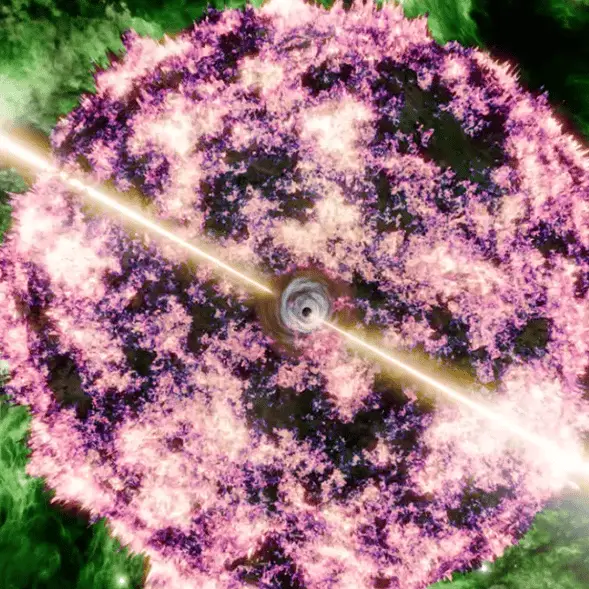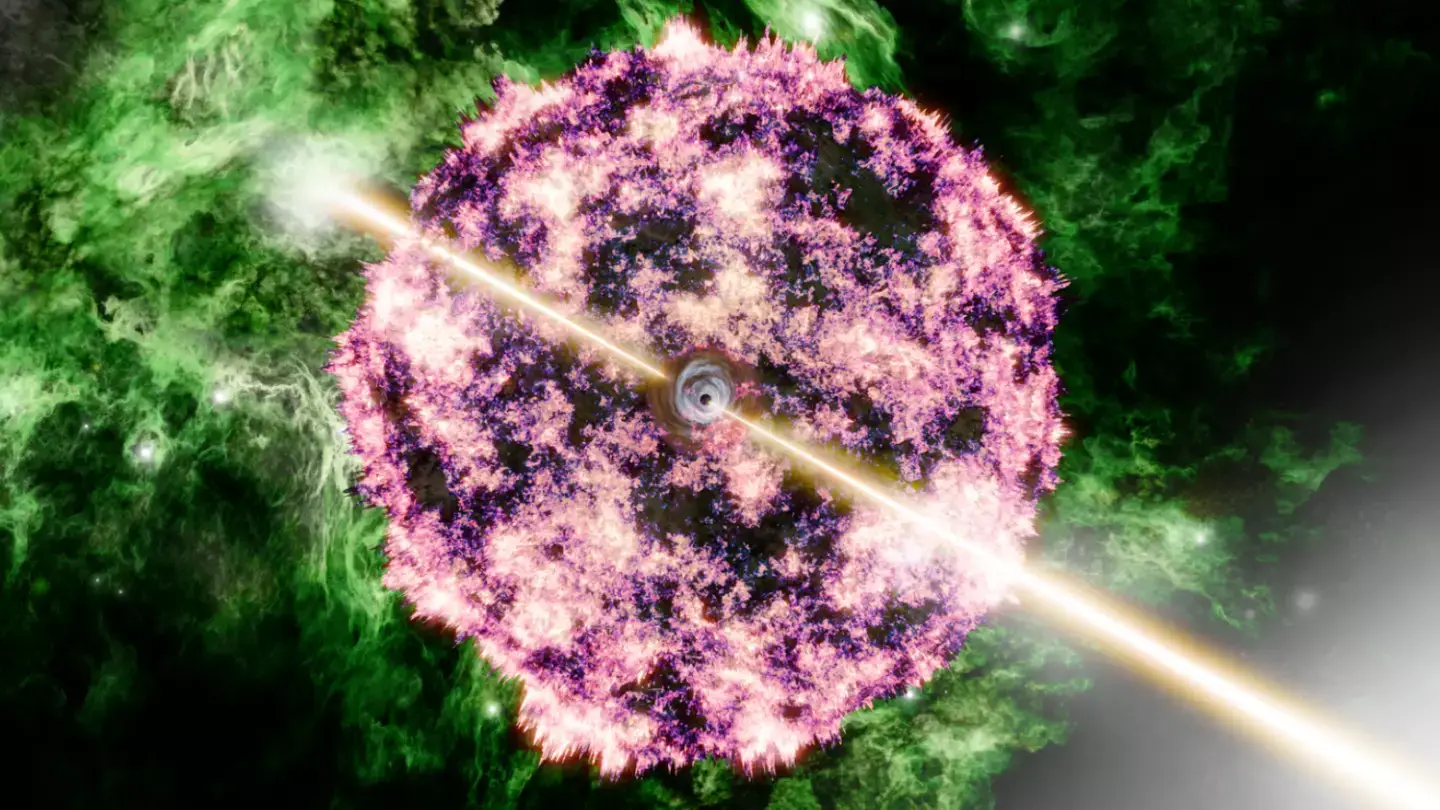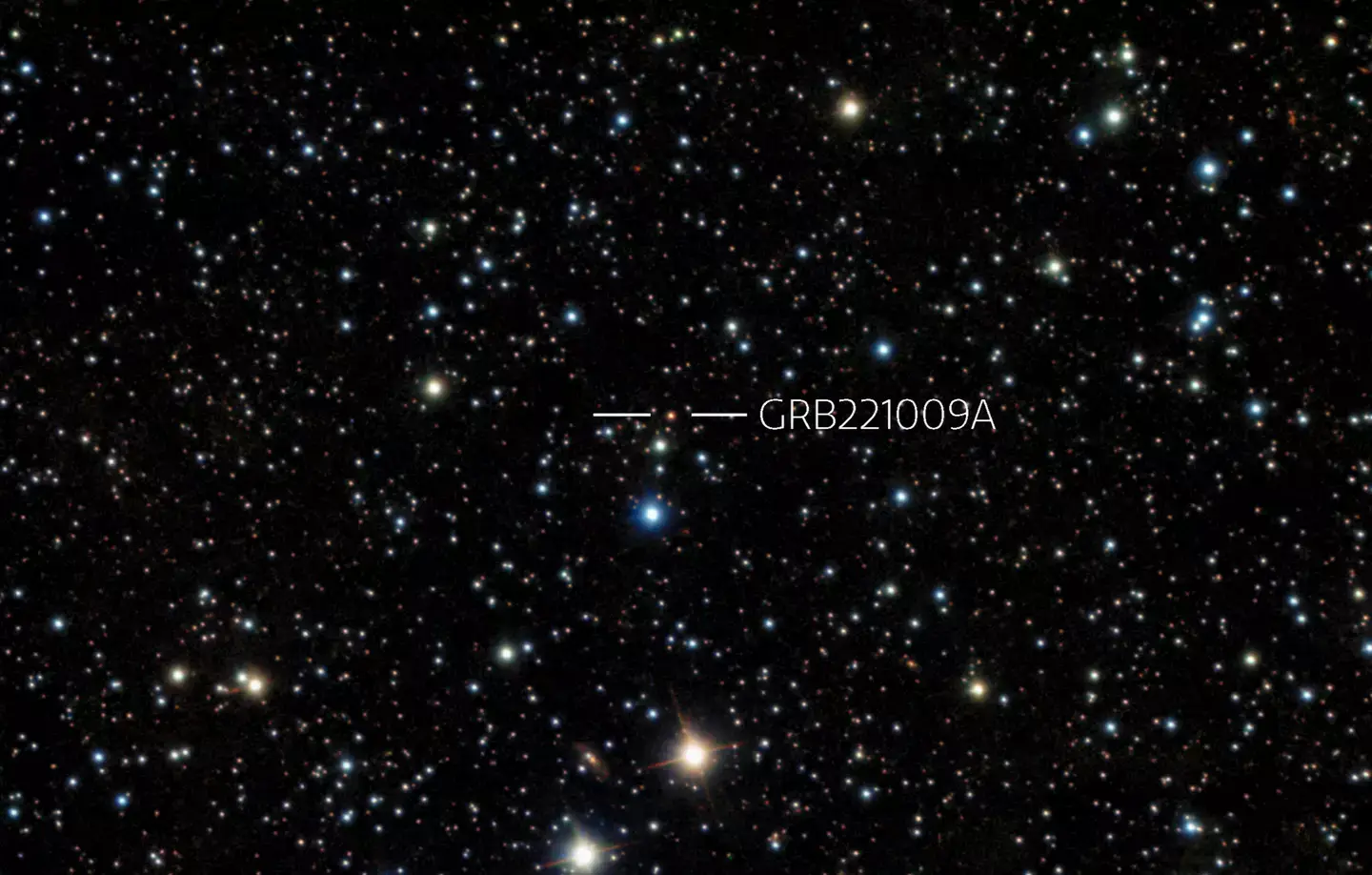
Scientists came across an incredible gamma-ray burst (GRB) which might be the biggest since the Big Bang.
In October 2022, NASA's Fermi Gamma-ray Space Telescope and the Neil Gehrels Swift Observatory detected a huge explosion which has been dubbed the 'brightest of all time' or B.O.A.T.
The official name of the burst is GRB221009A.
GRBs are described by scientists as 'transient flashes of high-energy photons from cosmological distances produced when a black hole drives a relativistic jet pointing toward Earth.'
Advert
Wen-fai Fong, one of the discovers of B.O.A.T and an associate professor of physics and astronomy said: 'As long as we have been able to detect GRBs, there is no question that this GRB is the brightest we have ever witnessed by a factor of 10 or more.

'Because the GRB is so bright, we expect to be able to monitor it for several months. It’s currently in its infancy, and we are learning more with each new passing observation.'
Research leader Maria Edvige Ravasio from Radboud University added: 'A few minutes after the BOAT erupted, Fermi's Gamma-ray Burst Monitor recorded an unusual energy peak that caught our attention.
'When I first saw that signal, it gave me goosebumps. Our analysis since then shows it to be the first high-confidence emission line ever seen in 50 years of studying GRBs.'
These explosions aren't small time either. If one were to occur within a few thousand light-years of Earth, it could knock out our planet.
You don't need to worry about this happening (again) in your lifetime though. These types of GRBS are only visible in the sky once every 10,000 years.

The one in 2022 did not impact Earth however, it did affect our atmosphere, around 310 miles altitude. This is considered the top half of our atmosphere.
This disturbance refers to a change in the upper atmosphere's electric field.
The cause, however, was likely 'the collapse of a massive star with up to 30 times the mass of our sun.'
'While some previous studies have reported possible evidence for absorption and emission features in other GRBs, subsequent scrutiny revealed that all of these could just be statistical fluctuations. What we see in the BOAT is different,' said co-author Om Sharan Salafia at INAF-Brera Observatory in Milan, Italy.
'We’ve determined that the odds this feature is just a noise fluctuation are less than one chance in half a billion.'